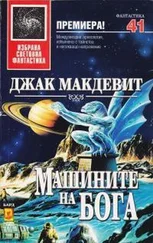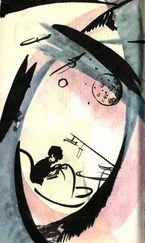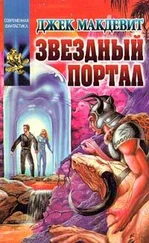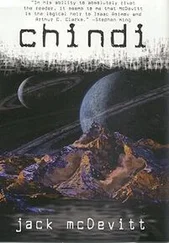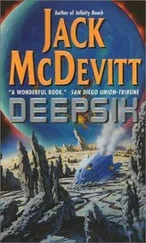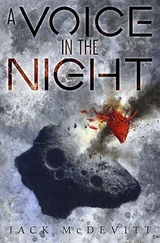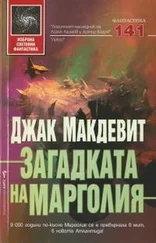He felt the tension of the moment, as one always does during those last seconds before the performance begins. He gazed over at the violins and signaled them to start.
The opening strains of Kornikov’s Charge of the Cossacks stirred, as if something in the night were just awakening. MacAllister summoned it forth, listened to it gather strength, felt it flow past the dimmed lights out into the audience. He knew its power, knew also that he controlled it, that it reacted to his baton, and to his fingertips.
He signaled the oboes, and the wind began to pick up. It blew mournfully across the steppe, gradually resolving itself into the sound of approaching cavalry. They came, the hoof-beats rising to a crescendo that at last shook the sky. MacAllister leaped onto his gray steed, Alyosha, his companion in a thousand battles, and joined them. He was draped in fur, an ammunition belt slung over one shoulder, a musket strapped to the animal’s flank. They moved through the night while the moonlight glittered against their weapons, and the viols sang.
He brought in the brass with a clamor, and they erupted in full gallop toward a hidden enemy. Toward women and children held captive. Toward invaders of the mother country.
Born to be a Cossack.
APPLAUSE ROLLED THROUGH the night. MacAllister generously pointed his baton toward the orchestra, and the noise went up a few decibels. He bowed and looked up to the boxes on his left. To Jenny’s box. He hadn’t programmed her in, never programmed her in, but it didn’t matter. She was there, and he saw her, gazing down at him, wearing one of the dark blue gowns she always wore on formal occasions. Then the curtain dropped and Tilly put the table lamp on and he was back in his living room.
“Very good, sir,” Tilly said, in his deep baritone. “An outstanding performance.” There was a hint of mockery in the AI’s comment, but that was okay. Tilly knew it was more or less expected.
He would have liked to reopen the curtain. To invite Jenny down to join him. And in fact it was possible. He could have her stroll across the stage and draw up a chair and sit and talk with him in her New England accent. He could send the rest of the audience home while they reminisced about the old days. He’d married late. He’d never expected to meet a woman to be taken seriously until Jenny erupted into his life.
Irreplaceable.
He’d always owned a reputation as something of a chauvinist. It wasn’t really true, of course. It was simply that he was a realist. He understood that women were, for the most part, not talented. Rule out the intersection of their anatomical attributes and his hormones, and they had little to offer. But he also understood that the great bulk of the male population were also vapid, easily led, dreary creatures. If Hutch got her wish, and we did one day encounter truly intelligent aliens, whom would we send to speak with them? To impress them with our capabilities? A politician? A college professor? Best, probably, would be a plumber. Someone lacking too high an opinion of himself.
Jenny had been a graduate student from Boston University, doing a research paper on him. She’d shown up out of the blue to watch him do a presentation at Colonial Hall in Boston. His subject had been “Your Future and Welcome to It.” She’d sat up front, but, incredibly, he hadn’t noticed her until she’d come to him afterward, patiently waiting while others presented books for his signature, shook his hand, and tried to ingratiate themselves. And then she’d been standing there, dark eyes, dark hair, shy smile. And the rest, as they say, was history.
They’d had three years.
MacAllister had lived, on the whole, a happy life. He’d accomplished, and in fact far exceeded, his childhood ambitions. He’d become a celebrated figure and a renowned editor. He’d won every major nonfiction literary and journalistic prize. He was accorded VIP status wherever he went, and he was proud of his enemies, who were the self-righteous, the arrogant, the uplifters who wanted to direct the way everybody else did things. During the course of those early years, he’d maintained that love was an illusion generated by chemistry and biological processes. That a man was far better off to resist the urge to mate. And then he’d met Jenny.
He’d been living in Baltimore then. They’d married within a few months, and she’d moved into his house on Eastern Avenue. And for three years they’d lived a gloriously happy existence. They went everywhere together, attending concerts and VR immersions and ball games. She’d joined him at presentations, had participated in Married to the Mafia panels at press luncheons, had been there when he delivered his graduation remarks at Western Maryland University, a performance that had sounded the clarion call against President Thompson and his corrupt crowd while nearly landing MacAllister in jail. And most of all, there’d been the pleasant evenings on their porch, alternately reminiscing about their own lives together and then debating the influence of Montaigne on Flaubert.
He lost her suddenly, and unexpectedly, to a disease named for a German researcher, something almost no one ever came down with. Something that twenty-third-century medicine, with all its advances, was helpless to halt. And he’d watched her waste away. The dark eyes had stayed bright until the end. Her mind had remained clear. But her body had shriveled and withered.
She’d died at home, declining the option that would have kept her alive but left her helpless.
MacAllister closed his eyes and let his head sink back. He could have re-created the front porch, had he wished. Could have re-created her. Put her beside him where they could watch the lights of passing traffic and talk as they had in the old days.
A lot of people did that. But it was the way to despair. Furthermore, it would have dishonored her memory. She would have told him to move on. Remember me but move on. So he resisted the temptation, and let her rest in peace.
“Tilly,” he said, “have you the news wraps?”
“Whenever you’re ready, Mr. MacAllister.”
He got up, while Jenny and the Cossacks slipped away, and got himself a beer. “Let’s go, then.”
He was always looking for stories that could be explored in The National. These, preferably, were tales of abuse by political and corporate authorities, academic malfeasance, wrong-doing in high places, hypocrisy by guardians of the nation’s moral fiber, and, his particular target, school boards that opted for indoctrination rather than literacy and math.
Last year, at the behest of the English Department of Rogan High School in Berwyck, Georgia, he’d appeared at a board meeting to fight an effort to ban from the schools any book containing any profane expression whatever. Good-bye, Gone With the Wind. Farewell, Moby Dick.
Attacked as a purveyor of foul language — someone had counted the number of damns in one of his essays — MacAllister had erupted. “When I go to a sporting event,” he’d told the board, “I no more want to sit behind a sewer mouth than any of you. But if it happens, I can assure you the perpetrator will not have learned it from Salinger or Munson or me.”
It was, he’d discovered, not easy to embarrass a school board.
It had been an interesting news week. The Heffernan, of course, was the lead story. Oklahoma was in the process of becoming the first state of the original fifty to ban firearms. This after three kids ranging from ten to twelve years old had wandered through a downtown shopping mall in Muskogee, killed seventeen people, and wounded forty-five more. The voters had apparently had enough of watching politicians get bullied by the arms industry and its surrogates.
In Philadelphia, distraught teenage lovers had climbed out onto a twelfth-floor balcony and jumped. Both families had opposed the match because of political differences. It was believed to be the first time a Greenie and a Republican had leaped together out of a building in Pennsylvania history.
Читать дальше


